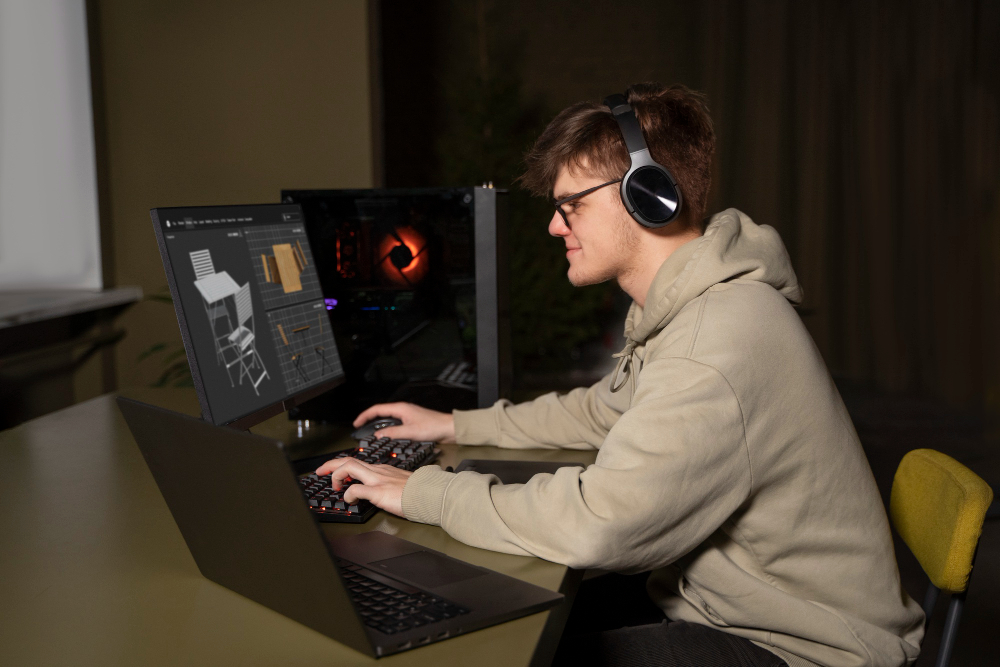Linux gaming has come a long way, thanks to advancements like Proton, Wine, and native Linux game support. However, gamers still face performance issues, compatibility problems, and optimization challenges. In this guide, we’ll explore tech hacks for PBLinuxGaming (Performance-Boosting Linux Gaming) to help you get the best experience possible.
Whether you’re a beginner or a seasoned Linux gamer, these tips will help you squeeze out extra FPS, reduce input lag, and fix common gaming headaches.
1. Optimize Your Linux Kernel for Gaming
The default Linux kernel is good, but a tuned kernel can significantly improve gaming performance. Here’s how:
Use a Low-Latency or Realtime Kernel
- Low-latency kernels reduce system delays, improving responsiveness in games.
- Realtime kernels (used in audio production) can help with frame timing.
How to install a low-latency kernel on Ubuntu/Debian:
bash
sudo apt install linux-lowlatency
For Arch Linux:
bash
sudo pacman -S linux-rt
Enable Fsync & Futex2 for Better Wine/Proton Performance
- Fsync reduces CPU overhead in Wine/Proton games.
- Futex2 improves performance in some DX12 titles.
Enable them by adding these kernel parameters in /etc/default/grub:
bash
GRUB_CMDLINE_LINUX_DEFAULT="... fsync=1 futex2=1"
Then update GRUB:
bash
sudo update-grub
2. Use GameMode for Automatic Performance Boosts
GameMode is a daemon that optimizes system performance when gaming. It can:
- Set CPU governor to performance mode
- Increase GPU performance
- Disable background processes
Installation:
bash
sudo apt install gamemode # Debian/Ubuntu sudo pacman -S gamemode # Arch Linux
Run a game with GameMode:
bash
gamemoderun %command% # Add this in Steam launch options
3. Optimize GPU Drivers for Maximum FPS
For NVIDIA Users:
- Install the latest proprietary drivers:bashsudo ubuntu-drivers autoinstall # Ubuntu sudo pacman -S nvidia nvidia-utils # Arch
- Enable Performance Mode:bashnvidia-settings –assign=GPUPowerMizerMode=1
For AMD Users:
- Use Mesa drivers for best open-source performance:bashsudo apt install mesa-utils mesa-vulkan-drivers # Ubuntu sudo pacman -S mesa vulkan-radeon # Arch
- Enable ACO shader compiler (faster shader compilation):bashexport RADV_PERFTEST=aco
For Intel ARC Users:
- Ensure you’re using the latest Intel Graphics Compute Runtime:bashsudo apt install intel-opencl-icd intel-level-zero-gpu
4. Reduce Input Lag with Compositor Tweaks
Linux compositors (like Mutter/KWin) can add input lag. Here’s how to minimize it:
Disable Compositing in KDE Plasma
- Press Alt+Shift+F12 to disable compositing while gaming.
- Or set it to disable automatically:bashkwriteconfig5 –file kwinrc –group Compositing –key Enabled false
Use Gamescope for Tear-Free, Low-Latency Gaming
Gamescope is a micro-compositor from Valve that reduces latency.
Installation:
bash
sudo apt install gamescope # Ubuntu sudo pacman -S gamescope # Arch
Usage:
bash
gamescope -h 1080 -w 1920 -f -- %command% # Add in Steam launch options
5. Improve Wine & Proton Performance
Use Proton-GE for Better Compatibility
Proton-GE includes extra patches for better gaming performance.
Installation:
bash
# Using ProtonUp-Qt (GUI) flatpak install net.davidotek.pupgui2
Or manually:
bash
wget https://github.com/GloriousEggroll/proton-ge-custom/releases/download/GE-Proton8-25/GE-Proton8-25.tar.gz tar -xvf GE-Proton8-25.tar.gz -C ~/.steam/root/compatibilitytools.d/
Enable DXVK & VKD3D-Proton for DirectX Games
- DXVK translates DX9/DX10/DX11 to Vulkan.
- VKD3D-Proton translates DX12 to Vulkan.
Most Proton versions include these, but you can force them:
bash
PROTON_USE_DXVK=1 %command% PROTON_USE_VKD3D=1 %command%
Enable Esync & Fsync for Smoother Performance
- Esync improves CPU performance in Wine.
- Fsync (better than Esync) requires a patched kernel.
Enable them in Lutris or via launch options:
bash
WINE_ESYNC=1 %command% WINE_FSYNC=1 %command%
6. Fix Audio Latency & Cracking with PipeWire
Linux audio can sometimes stutter in games. PipeWire fixes this:
Installation:
bash
sudo apt install pipewire pipewire-pulse # Ubuntu sudo pacman -S pipewire pipewire-pulse # Arch
Disable unnecessary audio effects:
bash
systemctl --user disable pulseaudio.service systemctl --user enable pipewire-pulse.service
7. Overclocking & Undervolting for Extra Performance
Overclocking NVIDIA GPUs
Use GreenWithEnvy (GWE):
bash
flatpak install com.leinardi.gwe
Undervolting AMD CPUs/GPUs
Use CoreCtrl for power tuning:
bash
sudo apt install corectrl # Ubuntu sudo pacman -S corectrl # Arch
8. Use Zram or Swapiness Tuning to Prevent Stuttering
If your system runs out of RAM, games can stutter. Zram compresses RAM in real-time.
Enable Zram:
bash
sudo apt install zram-config # Ubuntu sudo systemctl enable --now zram-swap.service # Arch
Reduce Swappiness (to avoid using slow swap):
bash
echo "vm.swappiness=10" | sudo tee -a /etc/sysctl.conf sudo sysctl -p
9. Monitor Performance with MangoHud
MangoHud is an overlay for FPS, CPU/GPU usage, and temps.
Installation:
bash
sudo apt install mangohud # Ubuntu sudo pacman -S mangohud # Arch
Usage:
bash
mangohud %command% # Add in Steam launch options
10. Game-Specific Fixes & Workarounds
Fix Elden Ring Stuttering
Use Proton-GE and disable EAC (Easy Anti-Cheat) if playing offline.
Reduce Cyberpunk 2077 Crashes
Set VKD3D_CONFIG=no_upload_hvv in launch options.
Fix Minecraft (Java) Performance
Use PolyMC or Prism Launcher with OpenJ9 JVM for better FPS.
Final Thoughts
Linux gaming is better than ever, but a few tweaks can make it even smoother. By optimizing your kernel, GPU settings, and Wine/Proton configurations, you can boost FPS, reduce input lag, and fix common issues.

